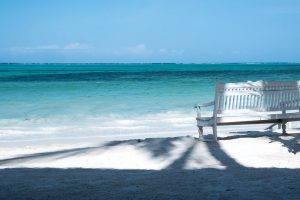Rwanda has undergone an extraordinary transformation in recent decades and is now regarded as one of the safest and cleanest countries in Africa. With stable governance, low crime rates, and a growing tourism infrastructure, Rwanda has positioned itself as a top destination for both eco-travelers and adventure seekers. How Safe Is Rwanda for Tourists?
However, for many first-time visitors, the question still lingers: “Is Rwanda safe for tourists?” This guide answers the most commonly searched and relevant questions about safety in Rwanda and is tailored to help you plan a secure and worry-free trip.
Is Rwanda Safe for Tourists in 2025?
Yes, Rwanda is considered one of the safest countries in Africa for tourists. The Rwandan government has prioritized security and public order, especially in popular tourist destinations such as Kigali, Volcanoes National Park, Lake Kivu, and Nyungwe Forest National Park. According to global safety rankings and travel advisories, Rwanda has consistently received positive scores for political stability, cleanliness, and low crime rates.
Tourist police units are visible in major towns, and law enforcement agencies are professional and responsive. Crime levels remain low compared to regional averages, and the few issues that do occur typically involve petty theft rather than violent crime.
What Are the Current Travel Advisories for Rwanda?
While Rwanda is generally safe, most international travel advisories recommend exercising normal precautions. Governments such as those of the United States, Canada, and the United Kingdom advise tourists to avoid the areas bordering the Democratic Republic of the Congo and Burundi due to periodic unrest. These border regions are far from the main tourist attractions and are easily avoided.
Travelers are encouraged to regularly check their home country’s foreign travel advisory websites before and during their visit to Rwanda for the latest safety updates.
What Common Safety Concerns Should I Be Aware Of?
Although Rwanda is safe, it’s important to be mindful of the following common concerns:
1. Petty Crime
Petty theft, such as pickpocketing or bag snatching, may occur in crowded urban areas like markets or bus stations. Keep your belongings secure, avoid flashing valuables, and always be aware of your surroundings.
2. Road Safety
Driving in Rwanda can be challenging, especially in rural areas. Roads may be narrow, winding, and poorly lit at night. If you’re renting a car, be cautious and consider hiring a local driver. Alternatively, stick to reputable transportation companies or tour operators.
3. Health and Medical Emergencies
Rwanda has good healthcare in major towns, but medical facilities in rural areas may be limited. Ensure you have comprehensive travel insurance that covers medical evacuation if necessary. Carry a personal first-aid kit, and consult a travel health clinic before departure.
Is Kigali Safe for Tourists?
Kigali, the capital city of Rwanda, is widely recognized as one of the safest and cleanest cities in Africa. Streets are well-maintained, crime rates are low, and there is a strong police presence. Kigali has a reputation for being a city where visitors can comfortably walk around during the day and even into the evening in well-lit areas.
Visitors should still follow basic safety rules: avoid walking alone late at night in unfamiliar places, be discreet with expensive gadgets, and use registered taxis or ride-sharing apps for transportation.
How Safe Are Rwanda’s National Parks?
Rwanda is home to some of Africa’s most unique and pristine national parks, including Volcanoes National Park, Nyungwe Forest National Park, and Akagera National Park. These parks are not only rich in biodiversity but also well-managed and highly secure.
Volcanoes National Park is where tourists go gorilla trekking, one of Rwanda’s premier attractions. Armed guides and rangers accompany every trek, and strict safety protocols are in place.
Nyungwe Forest National Park, famous for its canopy walk and chimpanzee tracking, also offers guided tours with high safety standards.
Akagera National Park, known for its Big Five game drives, is patrolled and maintained by both park authorities and Rwanda Development Board officials.
The controlled access to these parks ensures that tourist activities are conducted in a safe and organized manner.
Is Public Transportation Safe in Rwanda?
Public transportation in Rwanda, including buses and moto-taxis (motorcycle taxis), is widely used and generally safe, especially in Kigali. However, there are some safety tips to consider:
Buses and minibuses are reliable, but always keep your valuables close.
Moto-taxis are convenient for short trips, but always wear a helmet and confirm the price before the ride begins.
For tourists unfamiliar with the area, using private transfers arranged through hotels or registered ride-hailing apps is often a safer and more comfortable option.
Is Rwanda Safe for Solo Female Travelers?
Rwanda is one of the safest African countries for solo female travelers. Women who travel alone have reported positive experiences, particularly when visiting Kigali and major tourist sites. However, like anywhere else in the world, solo female travelers should take certain precautions:
Dress modestly, especially in rural or religious areas.
Avoid walking alone late at night.
Trust your instincts and avoid situations that make you uncomfortable.
Choose well-reviewed accommodations and reputable tour operators.
Street harassment is uncommon compared to other countries in the region, and Rwandans are generally respectful and helpful to visitors.
What Health Precautions Should Tourists Take?
Health safety is a critical consideration when traveling to any destination. For Rwanda, here are the key health-related precautions:
Vaccinations: Yellow fever vaccination is mandatory, and you should also be up to date on Hepatitis A, Hepatitis B, typhoid, and routine immunizations.
Malaria Prevention: Rwanda is a malaria-risk area. Take antimalarial medication as prescribed, and use mosquito repellents and nets.
Food and Water Safety: Drink bottled or purified water and avoid raw foods from street vendors unless you’re confident in their hygiene.
Travelers should visit a travel clinic 4–6 weeks before their trip for personalized health advice.
What Should I Do in an Emergency in Rwanda?
In case of an emergency while in Rwanda, here are the key contacts and steps to follow:
Police Emergency: Dial 112 for assistance.
Medical Emergency: Dial 912 for ambulance services.
Tourist Police: Present in major tourist areas and airports to assist visitors.
Embassy Assistance: Keep contact information for your country’s embassy or consulate in Rwanda.
It is advisable to register with your embassy upon arrival and share your travel itinerary with family or friends back home.
Are There Cultural or Legal Norms Tourists Should Follow?
Yes. Respecting local customs and legal standards helps ensure a trouble-free experience in Rwanda. Here are some key cultural and legal guidelines:
Respect for the 1994 Genocide Legacy: Avoid making insensitive remarks or jokes about the genocide. When visiting memorials, dress modestly and behave respectfully.
Public Conduct: Avoid public displays of affection, especially in rural areas.
Plastic Ban: Rwanda has strict environmental policies and bans plastic bags. Avoid bringing them into the country.
Photography: Always ask for permission before photographing people. Avoid taking photos of government buildings or security personnel.
Understanding and respecting Rwandan culture will not only keep you safe but also deepen your travel experience.
Should You Be Concerned About Safety When Visiting Rwanda?
Rwanda is not only safe—it is a model of progress and security in Africa. With welcoming locals, efficient services, and a strong focus on tourism development, it offers a secure and enriching experience for all types of travelers. How Safe Is Rwanda for Tourists?
Whether you’re trekking with mountain gorillas, enjoying a lakeside retreat, or exploring Kigali’s vibrant culture, Rwanda offers peace of mind along with unforgettable adventure. By taking the standard precautions outlined in this guide, you can explore Rwanda confidently and responsibly.a




